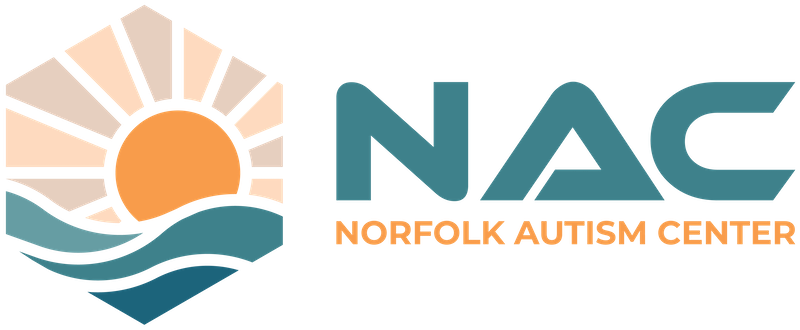Finding the right support for your child with autism can feel like navigating uncharted waters. If you’re considering ABA therapy in Norfolk, you likely have a mix of hope, questions, and perhaps even some uncertainty. You might be wondering what exactly ABA therapy involves, whether it’s the right choice for your unique child, how to navigate insurance coverage, or what the day-to-day experience will look like for your family. These concerns are not only valid—they’re shared by many parents standing exactly where you are now.
ABA therapy, when implemented thoughtfully and compassionately, can be a powerful tool in helping your child develop skills that enhance their independence, communication, and quality of life. The therapy’s focus on understanding behavior and building on your child’s strengths can open doors that once seemed firmly closed. In Norfolk, families have access to a range of ABA providers, each offering different approaches and specialties.
This guide aims to provide you with practical, clear information to help you make confident decisions about your child’s care. From understanding the fundamentals of ABA therapy to navigating Norfolk’s specific resources, we’ll walk through what you need to know to advocate effectively for your child’s needs.
What is ABA Therapy?
Applied Behavior Analysis (ABA) therapy is an evidence-based approach that focuses on understanding how behavior works in real-life situations. At its heart, ABA therapy is about recognizing that all behavior happens for a reason—whether it’s to communicate a need, avoid discomfort, gain attention, or access something enjoyable. By understanding these underlying reasons, therapists can develop strategies that help children learn new skills and reduce challenging behaviors.
Modern ABA therapy relies heavily on positive reinforcement—celebrating and rewarding desired behaviors to encourage their repetition. For example, if your child successfully uses words to request a favorite toy, the therapist might provide enthusiastic praise along with the requested item. Over time, this positive association strengthens the communication skill.
Many parents have heard outdated descriptions of ABA as rigid or focused on compliance. Today’s ABA approaches are quite different. Contemporary ABA therapy is individualized to each child’s needs, interests, and learning style. Rather than enforcing a one-size-fits-all program, skilled therapists build on your child’s natural motivations and preferences. Sessions often look like structured play, with learning embedded in activities your child enjoys.
Another common misconception is that ABA aims to eliminate autism-related behaviors like stimming (self-stimulatory behaviors such as hand-flapping). Modern approaches recognize that many of these behaviors serve important self-regulation functions. Instead of trying to eliminate these behaviors, therapists may focus on expanding your child’s communication skills so they can express their needs in multiple ways.
The goal of quality ABA therapy isn’t to change who your child is, but rather to help them develop skills that will allow them to engage more fully with the world around them, in ways that are meaningful and fulfilling to them.
ABA Therapy Resources in Norfolk
Norfolk and the surrounding Hampton Roads area offer diverse options for families seeking ABA therapy. The landscape includes center-based programs where your child attends sessions in a specialized facility, in-home services where therapists come to your home, school-based services that integrate with your child’s educational environment, and hospital-affiliated programs that may coordinate with other medical services.
When researching providers in Norfolk, start by verifying credentials. Quality ABA programs are supervised by Board Certified Behavior Analysts (BCBAs) who have completed extensive education and supervised experience in the field. Many Norfolk providers also employ Registered Behavior Technicians (RBTs) who work directly with children under BCBA supervision.
As you explore options, consider asking potential providers about their approach to parent involvement, how they measure progress, their experience with children similar to yours, and their philosophy on using positive reinforcement versus managing challenging behaviors. Their answers will help you gauge whether their approach aligns with your family’s values and your child’s needs.
Norfolk has developed a collaborative community of autism service providers who often work together to support families. Many ABA providers coordinate with occupational therapists, speech therapists, and educators to ensure consistent approaches across all areas of your child’s development. This collaborative spirit is particularly valuable for families who need multiple services.

Quality providers will help you find ways to embed learning opportunities within existing routines, making them sustainable for the long term
The ABA Therapy Process in Norfolk
Starting ABA therapy typically begins with a comprehensive assessment of your child’s current skills and challenges. In Norfolk, this initial evaluation is conducted by a BCBA who will spend several hours observing your child, interviewing you about your concerns and priorities, and possibly conducting formal assessments. This information forms the foundation for developing your child’s individualized treatment plan.
The treatment plan outlines specific goals tailored to your child’s needs—whether that’s developing language skills, building social interactions, increasing independence in daily routines, or addressing behavioral challenges. Each goal includes measurable criteria so progress can be objectively tracked. The BCBA will review this plan with you, incorporating your input about priorities and ensuring the goals align with your family’s values.
Once therapy begins, most Norfolk providers offer sessions ranging from a few hours per week to more intensive programs of 20+ hours weekly, depending on your child’s needs and your family’s schedule. Many local providers offer flexible scheduling, including after-school hours and some weekend availability to accommodate working parents.
During sessions, your child will work one-on-one with an RBT who implements the treatment plan developed by the BCBA. These sessions might look like structured play with goals embedded in fun activities. The therapist continuously collects data on your child’s progress, which the supervising BCBA reviews regularly to make any necessary adjustments to the treatment approach.
Norfolk providers typically schedule regular team meetings—usually monthly—where you’ll meet with your child’s therapy team to review progress, address any concerns, and update goals as needed. These meetings are crucial opportunities for you to provide input and ensure therapy remains aligned with your family’s needs.
For families with multiple service providers, many Norfolk ABA centers offer coordination with schools and other therapists. Some providers even conduct sessions in multiple settings—starting in-center to establish skills and then transitioning to home or community environments to ensure skills transfer to real-world situations. This flexibility is particularly valuable in helping your child apply new skills across different contexts.
As therapy progresses, your child’s treatment plan will evolve. Initial goals might focus on foundational skills like communication or attention, gradually building toward more complex social skills or independent functioning. Throughout this journey, the therapy team should maintain open communication with you about adjusting approaches as your child grows and changes.
Family Involvement and Support
In effective ABA therapy, parents and family members are essential partners in the process, not just observers. Research consistently shows that children make the most progress when strategies from therapy are reinforced throughout their daily lives. Norfolk providers recognize this and typically include parent training as a core component of their programs.
This training might involve observing therapy sessions, practicing techniques with coaching from the BCBA, and receiving guidance on how to address specific situations at home. The goal isn’t to turn you into a therapist, but rather to help you apply key principles in ways that feel natural within your family routines.
For example, if your child is working on requesting items verbally in therapy, your BCBA might help you identify natural opportunities to practice this skill at home—perhaps during mealtime or play. They might suggest keeping preferred items visible but slightly out of reach, creating natural opportunities for your child to practice requesting. When your child makes an attempt to communicate, even if imperfect, you would respond with the requested item and enthusiastic praise, reinforcing the connection between communication and getting needs met.
Norfolk offers several support resources for families beyond direct therapy services. Organizations often host regular parent support groups where you can connect with others walking a similar path. Recreation centers like the YMCA provide adaptive recreation programs where your child can practice social skills in supportive environments.
Many Norfolk ABA providers also facilitate connections between client families, organizing social events or parent coffees where you can build your support network. These connections can be invaluable not just for emotional support but also for practical advice about local resources, school programs, and recreational opportunities suited to children with autism.
Remember that implementing therapy strategies at home shouldn’t create additional stress for your family. Quality providers will help you find ways to embed learning opportunities within existing routines, making them sustainable for the long term. The goal is to enhance your relationship with your child, not add pressure to an already busy family life.
Choosing the Right Place
Choosing the right therapy approach for your child is one of the most important decisions you’ll make as a parent of a child with autism. ABA therapy, when delivered with compassion and respect for your child’s unique personality, can be a powerful tool for developing skills that enhance independence and quality of life. The key is finding the right provider who aligns with your family’s values and understands your child’s specific needs.
Throughout this journey, remember that you know your child best. Trust your instincts when evaluating providers and don’t hesitate to ask questions or raise concerns about approaches that don’t feel right for your family. The right ABA provider will welcome your involvement and respect your role as the expert on your child.
Norfolk’s community offers a wealth of resources to support families of children with autism, from specialized therapy providers to parent support groups to recreational programs. You don’t have to navigate this path alone, and connecting with other families can provide both practical guidance and emotional support during challenging times.
If you’re considering ABA therapy for your child or have questions about what approach might be right for your family, Norfolk Autism Center welcomes you to reach out for a consultation. Their experienced team is available to answer your specific questions and help you understand the options available for your child. You can contact them at (757) 777-3229 or visit their facility at 152 Burnetts Way, Suffolk, VA 23434 to learn more about how they might support your family’s journey.




